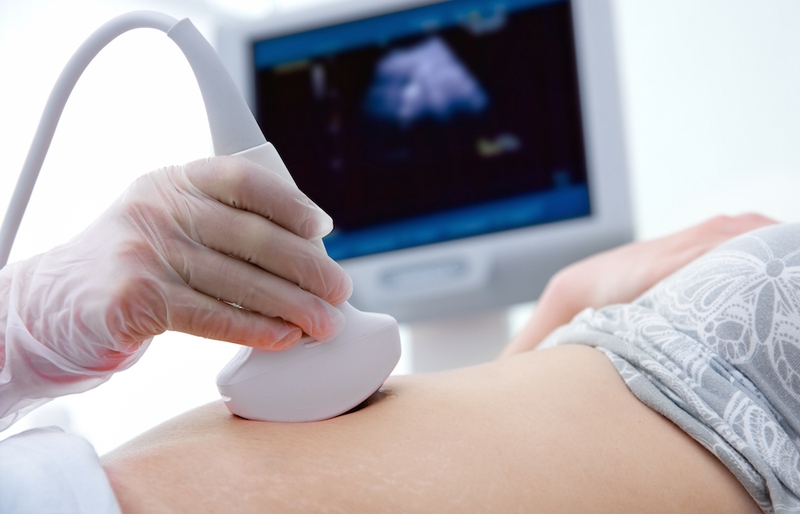Pregnancy is often a time of excitement and enjoyment, but this isn't always the case for every woman. One out of four pregnancies ends in a miscarriage. While some women may be at a higher risk for miscarriage, it can happen to anyone regardless of their risk factor. When you are more aware of the signs of a miscarriage, you can take action more quickly when you notice any warning signs.

What Are the Signs of a Possible Miscarriage?
Bleeding
One of the first indication of a miscarriage is bleeding, but this can also be a misleading sign. Most women will experience some bleeding or spotting during their pregnancy and this doesn't always result in a miscarriage. So if you have any bleeding during your pregnancy, you want to let your doctor know as soon as possible.
Pain
Pain is also a common pregnancy symptom during pregnancy since the body is changing and growing to make room for the growing fetus. If you experience pain with other miscarriage symptoms, however, this can be a cause for alarm. If you feel pain around the abdomen region, pelvic area or the lower back, which is also accompanied with bleeding, this can be a clear sign of miscarriage.
Decrease in movement
Most miscarriages occur early during the pregnancy, so often times the woman
Pregnancy symptoms change
One of the harder
What Should You Do If Having These Signs?
Miscarriages can present a number of signs or none at all which is why it is important to contact your doctor if you feel you have any of these signs.
Just because you may have one or more of these signs that commonly indicate a miscarriage isn't always a concern. During the first twelve weeks of pregnancy, bleeding or spotting is fairly common and does not typically indicate a miscarriage. Pain is also common as the ligaments begin to stretch and cramps are also common when the fertilized egg attaches to the uterus. So, as said before, connect with your doctor if noticing any changes.
How to Know If You Did Have a Miscarriage
Determining whether you have had a miscarriage or not is not always simple. Most miscarriages are only detected once an ultrasound is performed. In many cases, this is done during a routine ultrasound when the embryo sac is found to be empty. This type of miscarriage is referred to as a silent or missed miscarriage.
Even when admitted to the hospital with symptoms that you may have had a miscarriage, you will not find out right away whether a miscarriage has occurred or not. Often you will be sent home and asked to return in a few weeks when an ultrasound will be performed to verify if a miscarriage has occurred or not.
How to Decrease the Chance of Miscarriage
Before you become pregnant
If you are planning on trying to become pregnant, it is advised that you schedule a preconception appointment with your gynecologist. During this visit, you will be given an annual exam if you are due for one and your medical history will be reviewed. If you are missing any vaccines like chicken pox or rubella, you will want to have them prior to becoming pregnant as they cannot be given once you become pregnant.
Eat healthy
While you may be taking a prenatal vitamin, it is vital that you eat plenty of fruits and vegetables daily. Eating a well-balanced diet can help reduce your risk of a miscarriage because it ensures you are supplying your body with the vitamins and nutrients necessary to keep you and your baby healthy.
Incorporate exercise into your routine
You want to exercise regularly while you are pregnant, but in moderation. You do not want to start any vigorous exercise program or training and you want to avoid contact sports which can increase your risk of injury. Avoid any high impact exercise that can increase your risk of miscarriage and stick with low impact workouts.
Reduce your caffeine intake
It is recommended that pregnant women limit their caffeine intake to just 200 milligrams a day. Drinking more than 2 small cups of coffee, tea or caffeinated beverages a day can increase your chances of miscarriage.
Decrease stress
When you are less stressed during your pregnancy, you decrease your chances of having any signs of miscarriage. Remaining relaxed, happy and feeling like you are in control will
Check your blood sugar
Women who are diabetic need to keep their blood sugar low during pregnancy as elevated blood sugar levels can lead to miscarriage or impaired fetal development.
Low dose aspirin
Taking a low dose aspirin may be able to reduce your risk of miscarriage but this should be discussed with your doctor first.
Other medication
Inform your doctor of any medications you are currently taking whether prescription or over the counter. You want to ensure that these medications are safe to take while you are pregnant.
Maintain a healthy weight
Women who are obese have a higher risk of miscarriage. If your body mass index is greater than 30, you want to lose weight prior to becoming pregnant to reduce your risk of miscarriage.
Treatable causes
In some
Quit smoking and drinking
Drinking any among of alcohol and/or smoking while you are pregnant greatly increase your chance of having a miscarriage at any stage during your pregnancy.

View All Comments /Add Comment